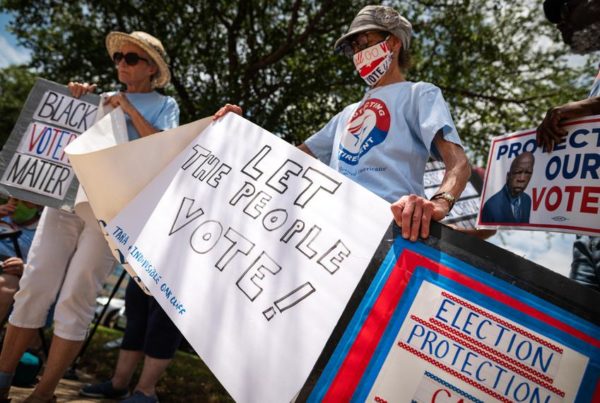AARP is asking Congress to consider a tax credit for the millions of Americans who are caregivers for elderly family members.
Amanda Fredriksen associate state director of advocacy and outreach for AARP Texas told Texas Standard that the group recently published a report highlighting the different ways caregiving affects American households. AARP is now working with lawmakers in both parties, and in both chambers, to pass the Credit for Caring Act that would give caregivers a tax credit of up to $5,000 to help cover expenses for their loved ones.
She says those expenses can include rent, mortgages or the cost of assisted living, medical care, travel to see those family members and much more.
Caregiving expenses are more costly for younger generations, Fredriksen says. While Generation X caregivers, who are in their 40s and 50s, spend more money overall on caregiving, she says they spend less of their total income on it compared to Millennials and Generation Z caregivers, who are younger.
The disparity is even greater for Black and Latino caregivers, Fredriksen says.
“[Latinos are] spending almost half of their household income on caregiving expenses and African-Americans are spending almost a third,” she said.
And those who care for older relatives with Alzheimer’s disease, dementia or mental health issues spend the most out of any other group.
Fredriksen says while AARP’s study was nationwide, she expects the national trends to ring true in the state. Right now, there are 3.4 million unpaid caregivers in Texas, and she’s hopeful that the Credit for Caring Act could help ease some of their financial burden.














